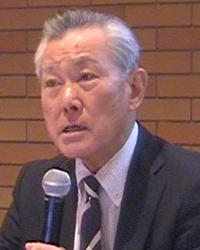Seminars: SSRI International Virtual Seminar, December 12, 2022
“The Response of the International Community to the Situations in Recent and Future Security Situations in East Asia”

Dr. Elena Atanassova-Cornelis

Dr. Jay L Batongbacal

Dr. Nguyen Hung Son

Dr. James Kraska

Dr. Robert McLaughlin

Gen. Osamu Onoda

Dr. Alessio Patalano

Dr. Eva Pejsova

Professor Akiko Okamatsu
BACKGROUND&PURPOSES
Russia's invasion into Ukraine shook the world. One of the reasons for the invasion was that Ukraine is a brother country with the same roots as Russian. President Vladimir Putin's action overlaps with President Xi Jinping's ambition to change the status quo by force.
China has been strengthening its military and maritime law enforcement power over the past decade. China is pursuing “wolf warrior” diplomacy to forcefully secure its maritime interests in the East and the South China Sea through a hybrid strategy that combines military and law enforcement power.
Last summer, when U.S. House Speaker Pelosi visited to Taiwan, China protested vigorously and conducted military exercise with firing missiles into neighboring waters including Japanese EEZ. China demonstrated use of force for its “core interests” – Taiwan and the Senkaku Islands.
The SSRI focuses what is the most effective way to deter China’s aggression to the Senkaku Islands and to control "contest of initiative" from escalating into use of force. First, we should recognize the current situation around the islands and identify the risks at present and future under Xi’s third term. Second, we should find out the direction of effort to control those risks and to generate international concern.




 Opening Address
Opening Address
